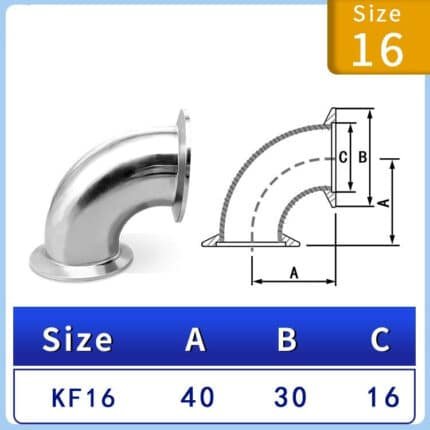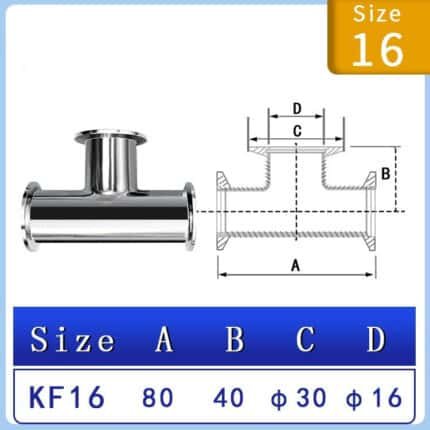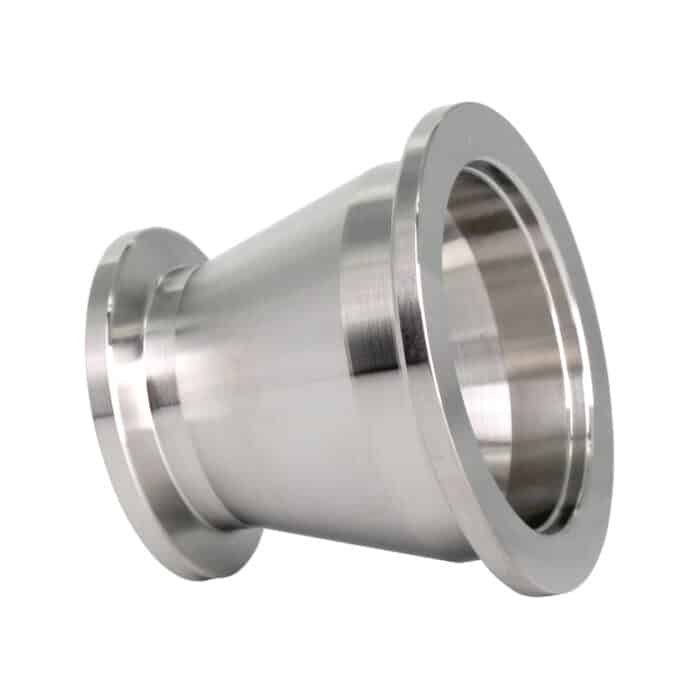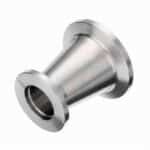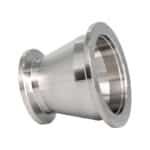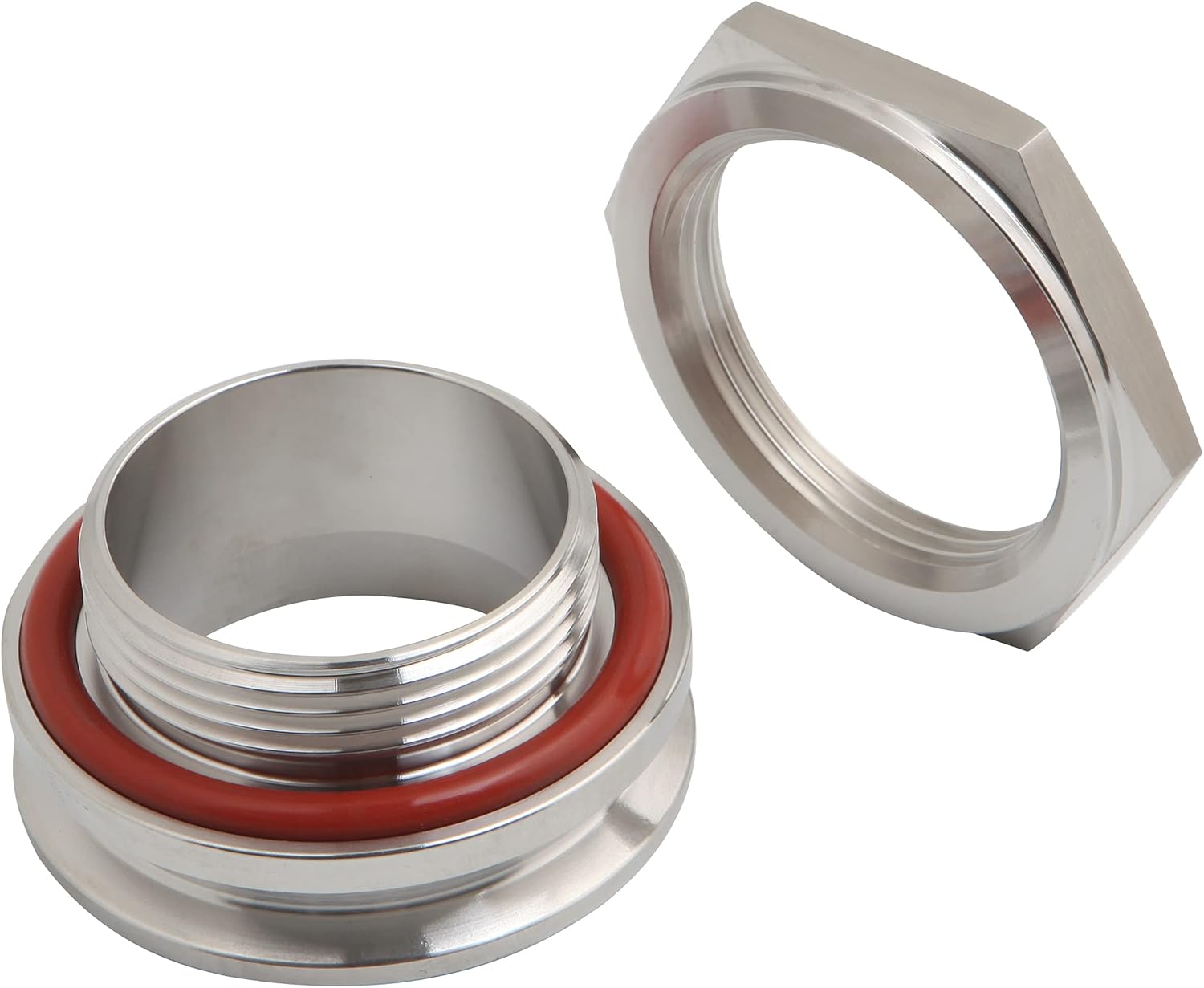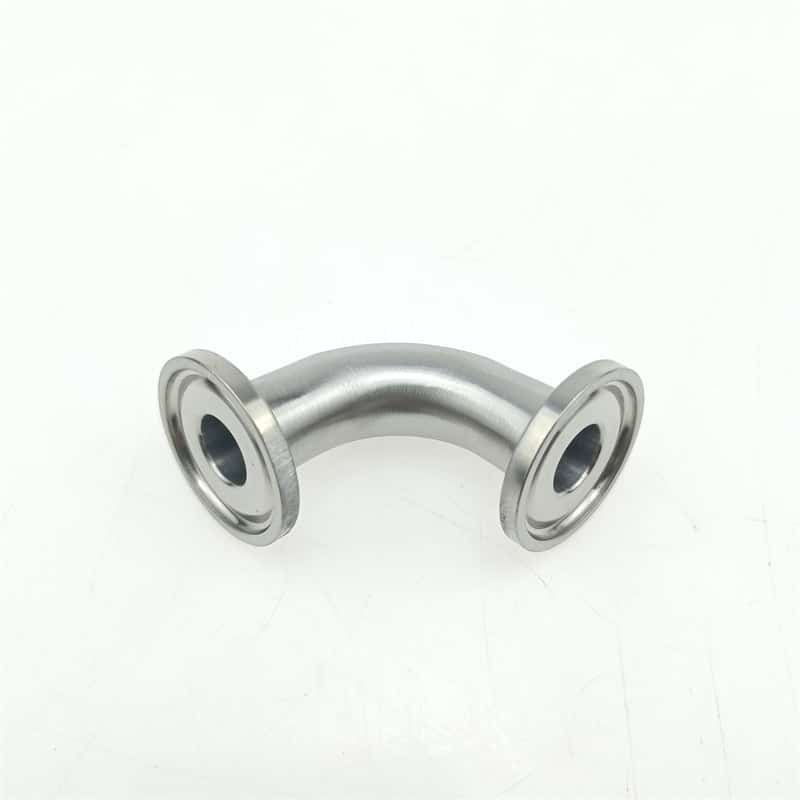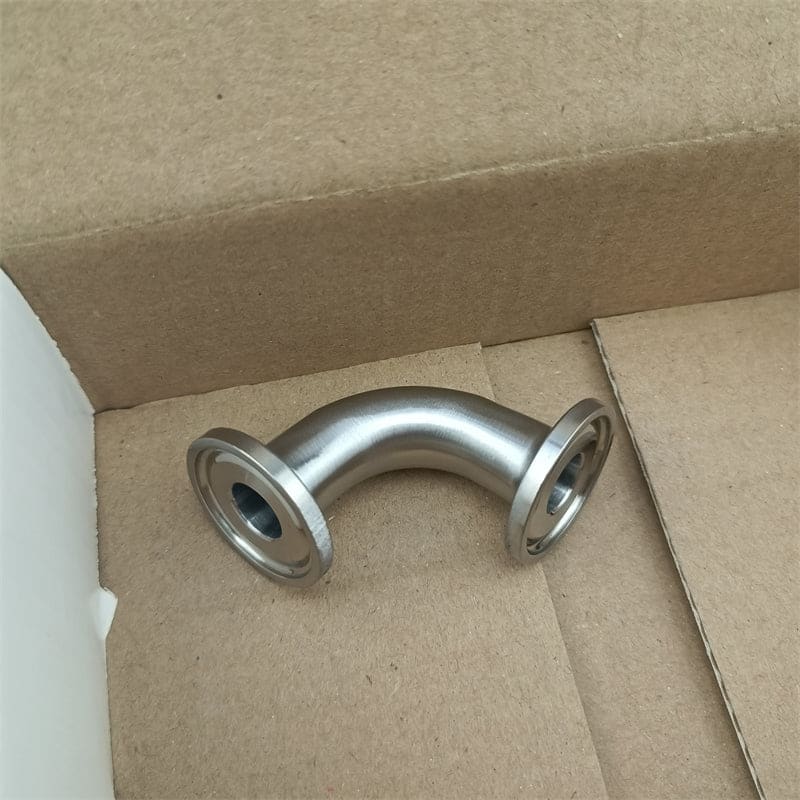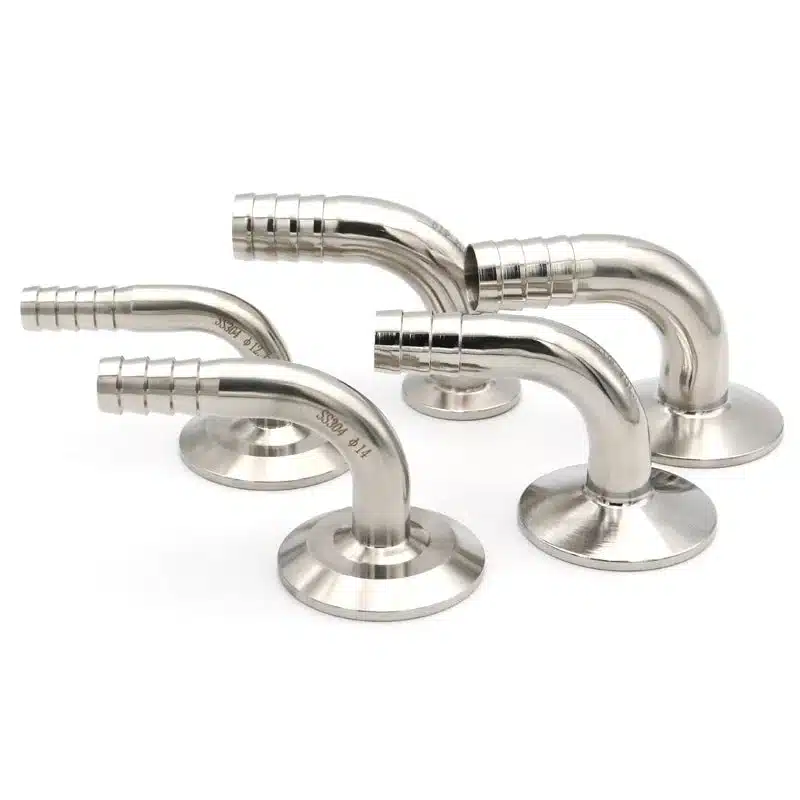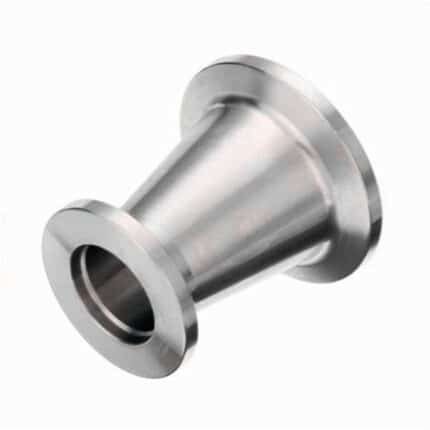Product Description
- KF to KF end reducer adapter .
- Concentric type .
- SS304 constructed, polish inside out side .
Frequently asked questions
Frequently Asked Questions (FAQ) about Stainless Steel 304 KF-KF Conical Reducing Adaptor Fitting
1. What is a Stainless Steel 304 KF-KF Conical Reducing Adaptor Fitting?
The Stainless Steel 304 KF-KF Conical Reducing Adaptor Fitting is a specialized connector used in high-vacuum environments. It features a conical design that allows for different diameters of KF (Klein Flange) fittings to be effectively connected, facilitating the transfer of gases or liquids in laboratory and industrial applications.
2. What are the main applications for this adaptor fitting?
This fitting is commonly used in vacuum systems, semiconductor manufacturing, and other applications where a secure and leak-proof connection is essential. It is ideal for connecting components of varying sizes in vacuum lines, pumps, and systems.
3. Why is Stainless Steel 304 used for this fitting?
Stainless Steel 304 is chosen for its excellent corrosion resistance, durability, and good mechanical properties. It is also non-reactive, making it suitable for use with a variety of gases and liquids without the risk of contamination.
4. What sizes are available for KF-KF conical reducing adaptors?
The KF-KF conical reducing adaptor fittings are available in various sizes to accommodate different applications. It’s important to choose the correct size to ensure a proper fit and maintain the integrity of the system. Typically, they come in standard sizes that correspond to the KF flange dimensions.
5. How do I install a KF-KF conical reducing adaptor fitting?
Installation requires proper alignment of the flanges to ensure a secure connection. You typically place a gasket between the flanges, align the holes, and use the appropriate screws or clamps to secure it tightly. Ensure that the connection is leak-free by testing the vacuum integrity post-installation.
6. Are there any maintenance considerations for these fittings?
While Stainless Steel 304 is low maintenance, it is advisable to regularly inspect the fittings for signs of wear, corrosion, or leaks. Occasional cleaning may be required, depending on the substances being handled. Always ensure compatibility between the fitting material and the transported media.
7. Where can I purchase Stainless Steel 304 KF-KF Conical Reducing Adaptor Fittings?
These fittings can be purchased from industrial supply companies, laboratory equipment suppliers, or online marketplaces that specialize in vacuum and scientific equipment. Be sure to buy from reputable suppliers to ensure quality and authenticity.
8. What is the temperature and pressure rating for these fittings?
Stainless Steel 304 KF-KF conical reducing adaptor fittings are generally rated for high vacuum applications and can withstand a wide range of temperatures and pressures. However, specific ratings can vary based on design and application; consult manufacturer specifications for exact details.
9. Can I use these fittings in corrosive environments?
While Stainless Steel 304 offers good corrosion resistance, it may not be suitable for extremely aggressive environments. For highly corrosive substances, consider options made from higher-grade materials or specialized coatings.
10. What should I do if I encounter issues with my stainless steel fitting?
If you experience leaks or other issues with your fitting, it is recommended to disassemble it, inspect all components for damage or wear, and replace any faulty parts as necessary. If problems persist, consult with a specialist or the manufacturer for further assistance.




